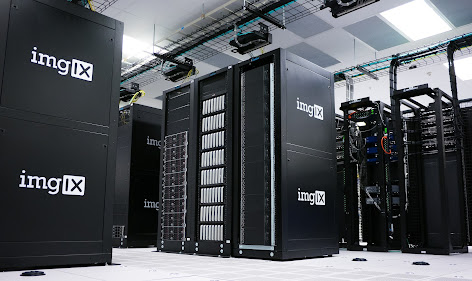You, like all other website owners, most certainly chose shared hosting when you originally set up your website. Of course, the fact that this service is less priced appeals to many people, especially given how important their budget is to them. However, when your site increases in popularity, it is vital that you select something more stable.
This is why you should think about purchasing a dedicated server. However, you may be asking what it is and whether it is genuinely required. This is why you might find this post useful.
When researching various hosting solutions, you will come across a plethora of hosting types, such as VPS, Hybrid Servers, Cloud, and Dedicated Servers. Despite the name, what exactly are dedicated servers, and what applications are best suited to this hosting type?
What Device Exactly Is A Dedicated Server?
A dedicated server is one that is hosted by a firm that only allows one company to lease and access it. It is "dedicated" to a single client and is not shared with anyone else. Dedicated servers often allow the client to select the operating system and hardware configuration. In some circumstances, the hosting firm provides administration services for the client as an add-on service, relieving the client of server management responsibilities.
In most circumstances, the hosting firm handles all or most of the dedicated server maintenance. This includes the following:
- operating system updates
- updates to any installed applications
- monitoring of the server and applications
- firewall maintenance
- intrusion detection and prevention
- data backups
- disaster recovery
Bare Metal Server or Dedicated Server
Before we continue, I'd like to clear up a name misunderstanding. You'll come across the phrase "bare metal server" while studying what are dedicated servers. A dedicated server is the same as a bare metal server. The distinction is due to branding rather than the product itself.
In contrast to a cloud server, which has a hypervisor layer that distances the user from the bare metal, bare metal implies that the user is close to the metal, the physical hardware. A dedicated server is synonymous with bare metal, hence the two terms are interchangeable.
Hardware for Dedicated Servers
A dedicated server is essentially a computer, similar to the ones you use at home or at work. Each server has CPUs, memory, storage, network hardware, and buses that connect the various components.
However, dedicated servers do not resemble regular PCs and do not include the same components. Dedicated servers, as opposed to the consumer-grade components of the normal PC or Mac, contain enterprise-grade hardware that is more stable, less prone to failure, and far more powerful. Examples; RAM as well as the CPU
What Are the Reasons and Advantages from A Dedicated Server?
A dedicated server provides numerous advantages, including enhanced performance, security, flexibility, and customization, as well as 24/7 on-premises support. The first thing to highlight is that, in addition to cloud services, a dedicated one will provide you with more power – of course, this will also depend on the package you select. The following are some of the reasons why you should use this service:
1. If More People Come to Your Website
So, if you've witnessed a significant rise in traffic to your website, consider having your own server right away. For example, if you continue to use shared hosting and your traffic increases, the performance of your site would suffer greatly. This can result in increased bounce rates, and you could easily lose more money.
2. If you want the pages to load faster
The loading time of the pages is one of the factors that can make or break an individual's experience when visiting your site. If your site is slow, you will have high bounce rates and lower engagement. However, once again, a dedicated server can handle these issues. It will improve the bandwidth needed for improving the loading time of your pages.
3. Increased security
By choosing a dedicated server, you ensure that no one else has access to the server, potentially increasing business security. You can also use firewall controls to further secure your assets while maintaining performance.
4. Simple personalization
In contrast to a shared server, your IT managers have complete control over the dedicated server. As a result, they may easily change the CPU, RAM, disk space, and software to meet the needs of the enterprise.
5. Improve Flexibility
A dedicated server, unlike a cloud server, can be used for almost anything, from web hosting and e-commerce to Virtual Private Networks (VPNs) and email servers.
When Should I Use One?
So, now that you know what they are and the benefits of using this hosting service, let's look at how you can identify if it's time to use one. The first thing you should think about is whether or not more people are accessing your website. You should use this service if the number has drastically increased.
You can choose between cloud and dedicated hosting, as well as VPS. Of course, all three ways enhance the bandwidth on your side and provide faster loading times. However, when it comes to site security, a dedicated server outperforms the other two solutions.
The last thing you should think about is your own wants as well as the needs of your site. If you do not have a limited budget, you cannot go wrong with purchasing a dedicated server. However, if you are on a limited budget, there are lesser options that will cost less. Once you apply it, you will realize the benefits it may provide, and you will understand why having a dedicated server is essential. Furthermore, you can easily upgrade to a more expensive bundle later on.





